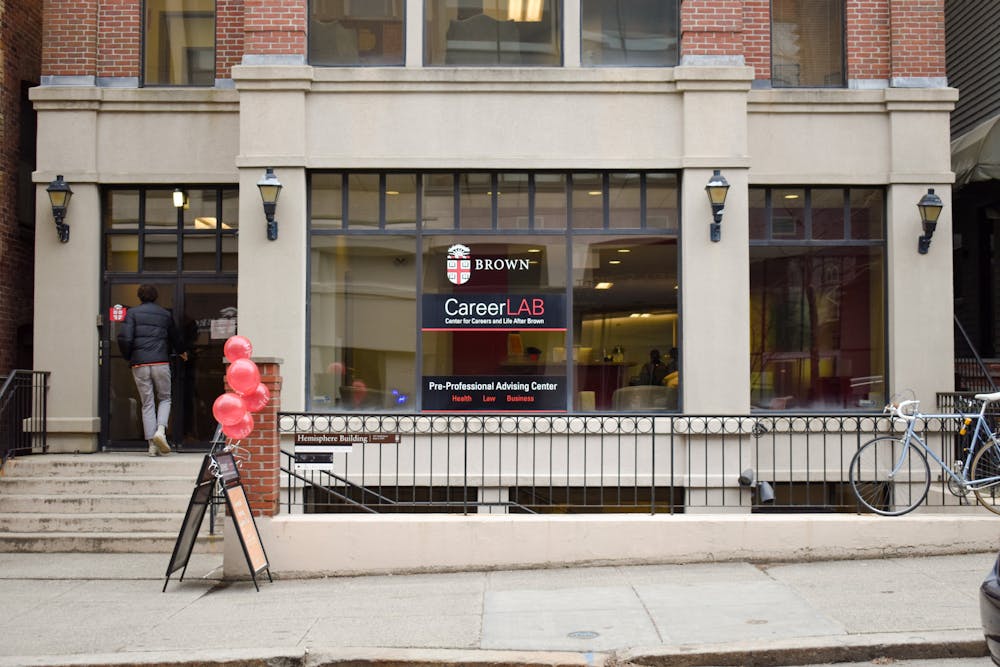As the spring semester ramps up, application season for summer internships has arrived, bringing with it a sense of anxiety for many students planning their upcoming summers.
Students often believe that they need to pursue summer opportunities that will aid in their post-graduation career advancement, but CareerLAB Director Matthew Donato views summer internships as a tool for students to gain “insight into (a field) they might want to explore and try out later on.”
“While you’re at Brown, we want you to explore pathways that will help you develop a skill that may align with something that you’re studying” or find personally rewarding, Donato said.
‘The stakes just feel so high’: Student anxieties
Ruth Engelman ’25 is not concerned with identifying the types of internships she’s interested in but with finding where these opportunities lie.
Students “looking to apply to graduate school or studying a concentration that’s very much academia-based, like I am with classics, (feel) a lot of pressure to do academic or research-based internships,” she said. But “accessing a list of places to apply to isn’t super easy, especially as an underclassman.”
Aixa Kidd, deputy director of CareerLAB and director of the BrownConnect Internship Initiative, urged students to recognize that there are still plenty of opportunities available to first- and second-year students — it’s just a matter of finding them.
“There are plenty of key skills you can build up in your first- and second-year summers that will lead to greater junior-year opportunities,” Kidd said.
For members of the University’s pre-law and pre-med communities, it can be challenging to view internships as tools for self-exploration instead of opportunities to build their resumes further.
“The stakes just feel so high,” said Jacob Gelman ’25, who is studying on the pre-law track. “In my mind, there’s a very distinct pathway to success that doesn’t offer much leeway. What’s worse is that there are very few legal internship opportunities open for those not already in law school.”
According to Donato, students pursuing law do not necessarily have to find internships directly related to the field, as most career opportunities available to Brown students teach transferable skills.
Donato added that students with similar concerns to Gelman should work to identify the experiences and factors that inspired them to pursue their intended careers and follow opportunities that hone those skills first, Donato added.
For pre-med students, Donato explained that while having specific research, medical or lab experience can enhance an application, there are still benefits to “other types of experience and multidimensionality.”
‘We’re here to help’: University resources
Both Donato and Kidd encourage students to utilize the resources available within the University, particularly the CareerLAB.
“When students think of internships, they immediately go into a panic,” Kidd said. “Talk to people, talk to peers, talk to alumni, use BrownConnect and go to the CareerLAB to figure out how to best tell your story.
“All students need help figuring out what they want to search for,” she added. “We’re here to help with that.”
BrownConnect is a particularly unique tool for crowdsourcing career-development experiences, according to Donato. The network’s opportunities are sourced from University community members outside of campus and give preference to current students.
“These alums, family members or parents who are offering those internship opportunities are usually explicitly looking to hire Brown students,” Donato said.
BrownConnect’s Summer and Semester Projects for Research, Internships and Teaching program is also particularly focused on helping students get initial internship experience, Donato added.
Kidd and Donato hope that students will come to see summer internships as a chance to better understand their passions and themselves.
“This really is an individual, self-discovery process,” Kidd said. “Sometimes you’re going to learn that this is the direction you want to go in, and sometimes you’ll learn that it isn’t. And that’s valuable information to gain so you can better decide what your next steps are.”
“We always talk with students about their transferable skills, and where you’ve developed these skills or knowledge and how you can tell that story,” Donato said. “It’s not the same for every student (and they should) showcase that multidimensionality.”

Sofia Barnett is a University News editor overseeing the faculty and higher education beat. She is a junior from Texas studying history and English nonfiction and enjoys freelancing in her free time.





